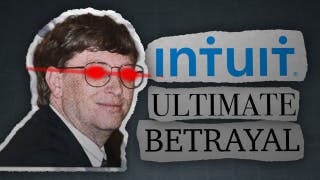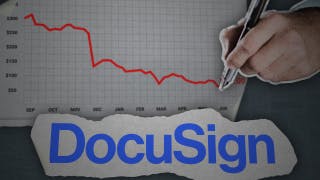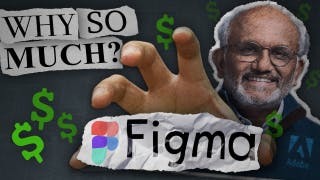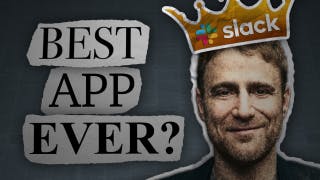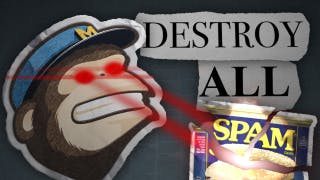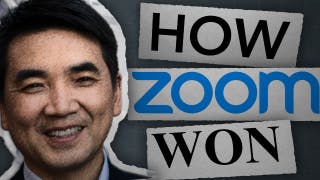
Is the future Passwordless? 1Password's Success
How many passwords do you know off the top of your head? To tell you the truth I couldn’t even tell you what my Netflix password is. From banking accounts to online games, and even the hair salon, it's estimated that the average person has 100 passwords.
Passwords are supposed to be long, unique, and complicated all to prevent hackers from breaking in. And don’t forget to change all of them at least once every three months. It would be nice if the world didn’t need passwords. That future might come to fruition, especially with the advent of the password manager.
But which one should you choose? There are a plethora of options like LastPass, Dashlane, Bitwarden (and I’m sure you’ll let me know which one is best), etc. But to me one company seems to stick out.
1Password is a juggernaut in the password management space being one of Canada’s most valuable tech firms at $6.8 Billion as of January 2022. 1Password has all the resources at its disposal to take over the entire market, but is it ready for a passwordless future? The winner in this space is going to be the company that best balances security with convenience. We'll walk through the origins of the password space, 1Password’s rise as a certified SaaS legend, and finally, whether or not our future truly is passwordless.
But first, if you like this kind of content and want to learn more, subscribe to get in the know when we release new episodes.
Lessons from the Top
Passwords are a necessary evil. And there really is no way around them if we want to keep our information safe. However, with the average person having around 100 passwords, remembering them all is likely impossible — for most of us. Luckily, we don't have to.
1Password understood this inconvenience all too well, and today is a juggernaut in the password management space. Through its commitment to improvement and customer satisfaction, it became one of Canada’s most valuable tech firms at $6.8 billion as of January 2022. What we can, and should, take away from 1Password's story, is that it takes a village to grow. Alignment across your entire company is key.
- Commitment to continuous improvement
1Password's mission is to ease the tension between security and convenience. And though it’s done a phenomenal job with a powerful product, 1Password knows the job is never done. The company continues to invest in the areas that make the greatest impact based directly on the feedback received from customers. - Company-wide focus on customer satisfaction
Ensuring your customers are satisfied is something every company strives for; however, 1Password goes beyond having a specialized customer support team. The entire company is directly involved in understanding its customer needs. Every employee at 1Password, including directors, spends time each week to answer customer support queries. Development of its product is directly based on this feedback.
Making this focus a company-wide effort ensures every department, thoroughly and personally, gains a deep level of understanding. And in turn, they’re able to sell better, market better, develop better, etc. - Thinking ahead
Things are ever changing in technology. So you have to be able to evolve along with it, and if possible stay ahead of it. 1Password has adapted to touch ID and face ID technologies. They’re also forming key partnerships for a possible passwordless future, even as threatening as that may sound for a password company. It’s preparing — now — to ensure it stays in the game.
Background
A password is defined as: something that enables one to pass or gain admission, such as a sequence of characters required for access to a computer system. And believe it or not, passwords have been around for a while — at least 2,000 years.
Early uses included ciphers, wax seals, and mask letters in order to protect information. American Prohibition saw the rise of “speakeasy” bars where alcohol was distributed illegally. Patrons who obtained a card or phrase could offer the password in order to get inside and imbibe to their heart’s content.
But perhaps no person is more important to the modern use of passwords than the American computer scientist known as Fernando J Corbató. While at MIT in the 1960s, Corbató and other researchers built a time-sharing computer called Compatible Time-Sharing System (or CTSS). CTSS is responsible for many foundational tools that tech and SaaS folks use today like e-mail, instant messaging, and file sharing. The issue to be solved for CTSS was that there were multiple terminals used by multiple people who all had their own set of files.
At the time, there were methods like knowledge-based authentication (information only the user would know like, “what is your mother’s maiden name?”), but this would require the computer to store personal information which users may not want to share. So instead, users were assigned a username and password.
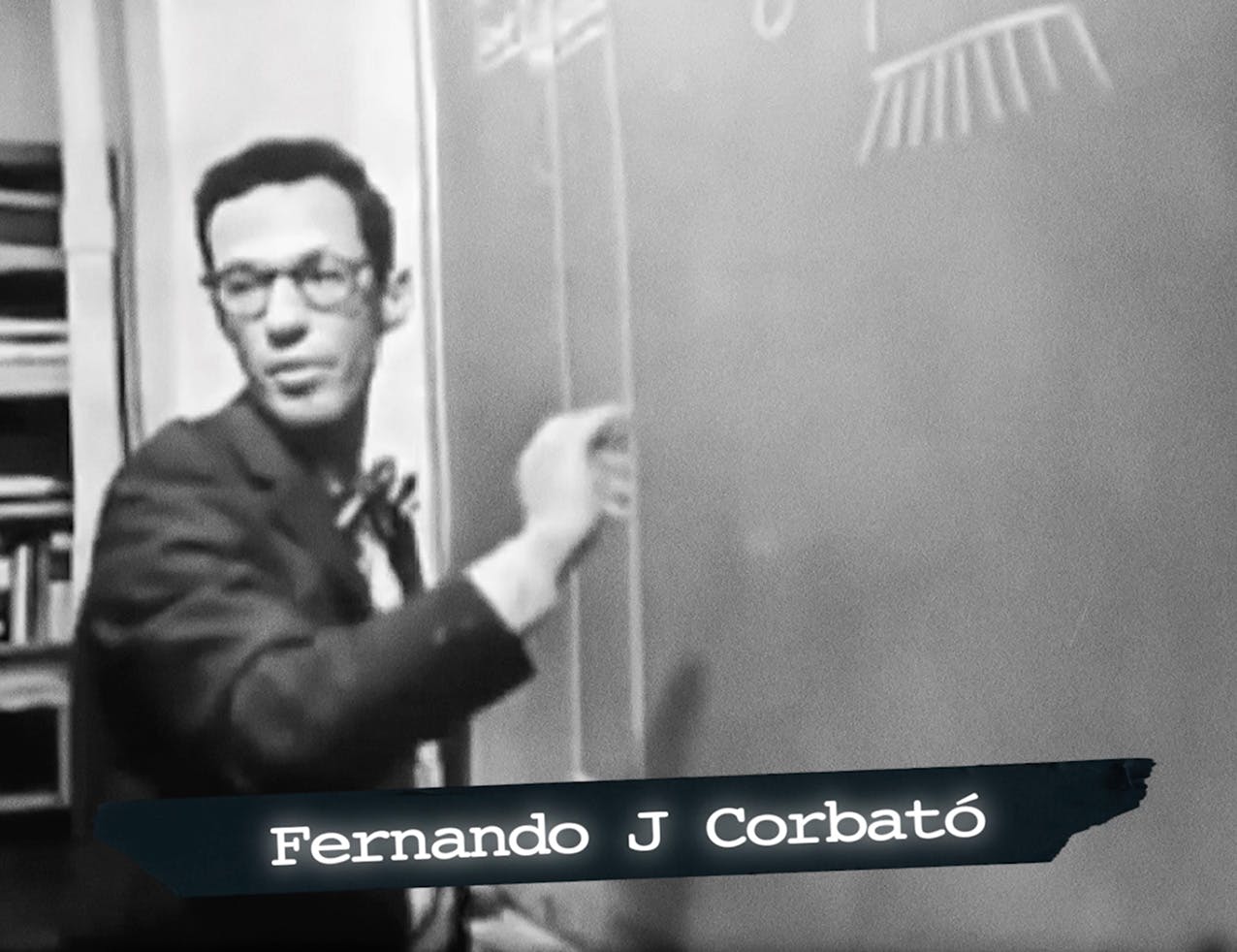
The one fatal flaw, that Corbató himself has admitted, is security was not put at a premium. This gave way to careless hacks and break-ins, like one user requesting files to be printed offline, which meant one could simply reveal all of the passwords and log in as his colleagues. They probably could have used a password manager… While this didn’t result in a major security breach, it’s indicative of one of the core issues with passwords themselves. They rely on the individual’s memory, and also, not accidentally giving up their secret code in a phishing attack (a fraudulent practice used to reveal personal information). In order to win in the space, the companies that would arise would have to focus on ensuring password managers were secure.
Early Leaders
Today, all password managers must use high-level encryption standards, meaning all your information is converted into secret code in order to mask its true meaning (kind of like how cyphers were used in the times before computers). Additionally, password managers rarely, if ever, store your master password. This means even the employees of a major firm cannot access your master key.
Security was important, but in the early days it wasn’t the number-one priority. Convenience was key. In 2000, Siber Systems released their flagship product: RoboForm. RoboForm first started out as an automatic form filler, but soon after implementation, the founders realized that users were typically using the product to fill out a very specific form: passwords. This provoked them to go all in on the space and just like that, the password manager race was off.
Dave Teare and Roustem Karimov got into the game shortly thereafter. In 2005, the two founded AgileBits a company which helped folks build websites. While doing this, they realized how difficult it was to keep up with passwords. On May 19th, 2006, they uploaded the first-ever version of 1Password for Mac.
Shortly after launch, users started sending feedback. Teare and Karimov couldn't have been more excited. They regularly pushed out new versions of 1Password with bug fixes and additional features, which resulted in more downloads and even more feedback. They took that information and refined the tool further and further, releasing 1Password for iOS and Windows in 2010. There is perhaps no better indicator of 1Password’s success than the fact that for the first 14 years of existence, they were entirely customer-funded.
In order to accelerate growth, 1Password finally decided to raise $200-million in 2019 and another $100 million in 2021. This took the company's valuation to $2 billion. With 90,000 paying customers and $120 million in annual recurring revenue, the sky was the limit for 1Password…
And then, in January of 2022, they closed another round of funding that brought in $620 million. Investors included superstars like Robert Downey, Jr., Scarlett Johansson, and Ryan Reynolds. Their valuation was pumped to $6.8 billion.

Reasons for success
1Password's mission is to ease the tension between security and convenience. It has recently added powerful capabilities to an already sterling product offering — a testament of its commitment to continuous improvement. Over the past year alone, the platform has launched Psst! (a secure way to transfer items within 1Password), Events API (a way to give security and IT teams greater visibility), and 1Password for Safari.
But perhaps no greater element to 1Password's success is its focus on customer satisfaction. 1Password receives all feedback, good and bad, in good faith. Today, every employee at 1Password, including its directors, spends time each week answering customer support queries. The entire company makes an effort to understand what people like about the product, what needs improvement, and how people use 1Password. The product team takes a closer look at the results and quantifies it. Developers then make judgements and decisions based on that feedback. If the product and design teams need specific or pointed feedback, or if the problem is more pronounced, the company interviews people who use 1Password the most. It even hosts customers in its offices to demonstrate new and upcoming features.
An interesting wrinkle in all of this is that 1Password does not offer a freemium tier. Frequent viewers of the show know that pretty much every successful company we’ve discussed thus far has had a free offering. It’s a massive opportunity to grow your company if you do it right. In fact, competitor LastPass came under fire recently for downgrading their free offering. Users were forced into choosing to access LastPass on their mobile or desktop device. Additionally, support was kneecapped. Customers became so upset that in an Android Authority poll of over 8000 users said that four out of five folks would move to a competitor.
It’s important to remember that freemium, while effective, is an acquisition channel, not a monetization strategy. 1Password wasn’t suffering from restricted growth, so they didn’t really need freemium. For more, check out our own research on the matter.
Being close to customers, developing a powerful product, and remaining true to founding values are the ingredients that have contributed to 1Password's success. 1Password is well positioned to drive continued growth. The company said it plans to triple its engineering and customer support teams, build out the Events API functionality, and finance more acquisitions. Ultimately 1Password will thrive as long as it dances that line between security and convenience.
And this line is an important one to focus on. According to Ann Johnson, Corporate VP of Security at Microsoft, “The user and the password is the weakest link in your security system.” she also says 70% of phishing attacks today are caused by stolen passwords. It’s why certain protocols must be put in place that can sometimes result in a dip in convenience.
You might already be familiar with 2 Factor Authentication, but in simplistic terms, 2FA is an extra step used to verify if a user is who they say they are. This is done with a text code, an authenticator app, or verification in another app. 1Password employs this, and it’s pretty much industry standard for all password managers. But while 2FA adds a layer of security, it also adds extra friction to logging in. While this friction is inherently good, it can get annoying. So how does 1Password stay secure but eliminate these extra steps?
In June 2022, CEO Jeff Shiner announced that 1Password had joined the FIDO Alliance. FIDO is essentially a consortium of leading tech companies, government agencies, and other industries that was launched in 2013 with the goal of eliminating the use of passwords on websites, devices, and apps.
Users can already use Touch ID to unlock 1Password on their mac computer or Face ID to unlock 1Password on their mobile device. Additionally, 1Password has formed strategic partnerships with folks like Yubico where users can insert a “Yubikey” or USB device that you then touch to complete 2FA. Other password managers have followed suit and with this trend, maybe the future is passwordless after all.
Summary
Picture a world where you don’t have to wrack your brain in order to log in to any account. It’s even simpler than using your password manager. Imagine if you didn’t even have to remember one? All you do is touch a finger pad here or look into an eye scanner there. Some banks have even started using voice recognition software.
I believe we will get there some day and security experts agree. But there is still a lot of ground to make up. According to Bitwarden, over half of 2000 consumers surveyed said they rely on their memory to manage passwords. And a third said they use a pen and paper.
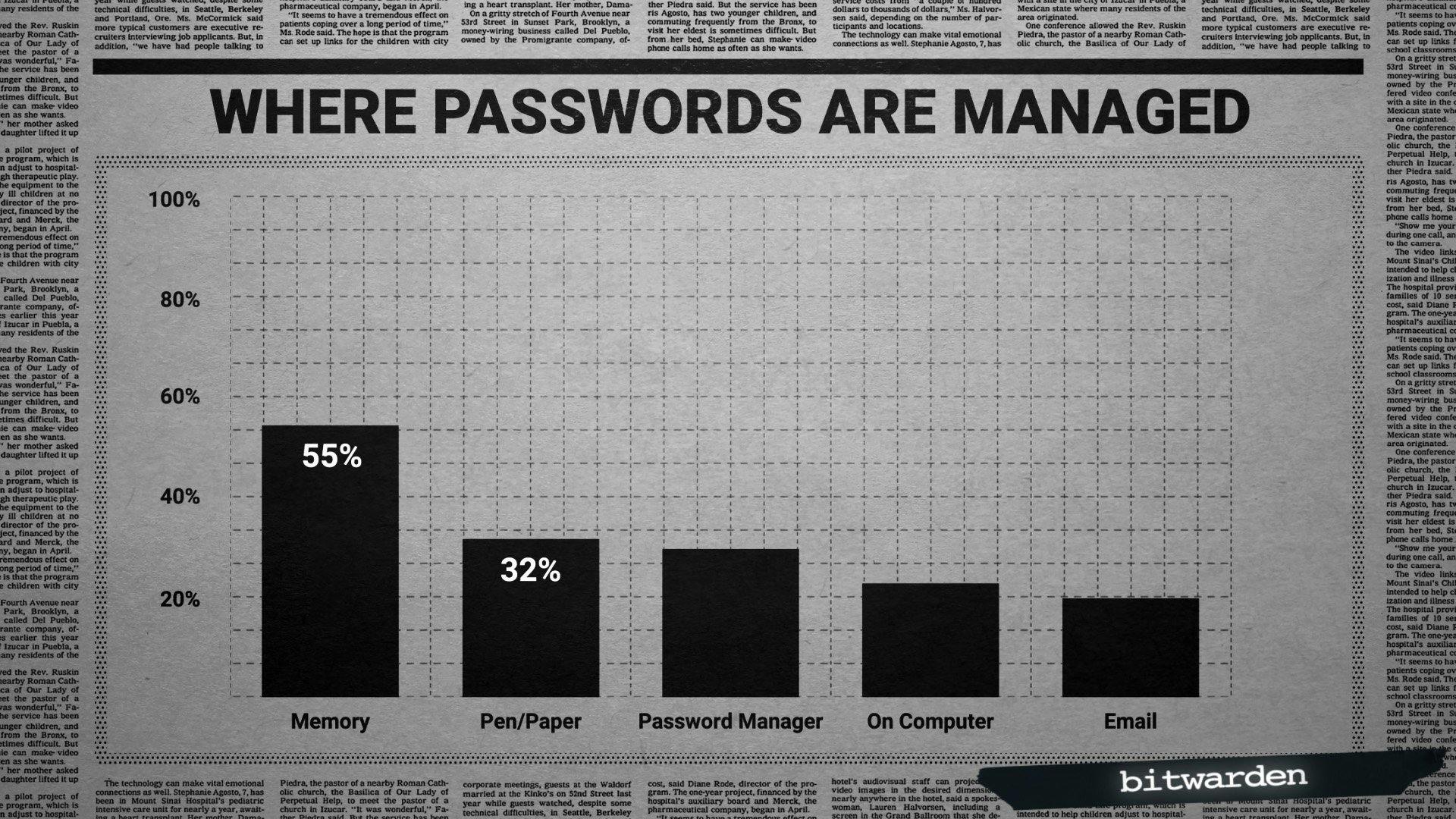
While I may not lose any personal information if I fall victim to a phishing attack while resetting my password for Netlfix, it’s in my best practices, for the sake of my other passwords, to have some sort of security. It’s more important for SaaS companies to ensure password security is top of the line especially considering how detrimental a customer data leak can be.
It's still too early to predict how long 1Password's reign will last. But if Jeff Shiner and company really want to remain at the top, then they have to keep innovating to fend off competitors. Facing off against juggernauts like Apple and Google who provide their own free offerings, can only last so long without moving the needle.
Ultimately, any company that wishes to topple 1Password has to be, at the very least, capable of matching 1Password's core offering. And most importantly, it has to be adequately prepared for a passwordless future. Which company do you think that will be? Or will 1Password remain on top? Let us know what you think.
If you like this kind of content and want to learn more, subscribe to get in the know when we release new episodes.
1
00:00:00,180 --> 00:00:01,230
- Two-factor authentication.
2
00:00:01,230 --> 00:00:02,460
- Auto fill as a login.
3
00:00:02,460 --> 00:00:04,380
- Too many passwords for
all your different systems.
4
00:00:04,380 --> 00:00:05,730
- So how many passwords do you know
5
00:00:05,730 --> 00:00:07,350
off the top of your head?
6
00:00:07,350 --> 00:00:09,300
To tell you the truth,
I couldn't even tell you
7
00:00:09,300 --> 00:00:11,070
what my Netflix password is.
8
00:00:11,070 --> 00:00:13,290
From banking accounts to online games,
9
00:00:13,290 --> 00:00:14,970
and even the hair salon,
10
00:00:14,970 --> 00:00:18,180
it's estimated that the average
person has a 100 passwords.
11
00:00:18,180 --> 00:00:20,910
It'd be nice if the world
didn't need passwords.
12
00:00:20,910 --> 00:00:23,190
And that future might
come to fruition soon,
13
00:00:23,190 --> 00:00:25,590
especially with the advent
of the password manager.
14
00:00:25,590 --> 00:00:27,030
I mean, there's a plethora of options,
15
00:00:27,030 --> 00:00:29,760
whether it's LastPass,
Dashlane, Bitwarden.
16
00:00:29,760 --> 00:00:31,080
I'm sure you'll let me
know which one's best
17
00:00:31,080 --> 00:00:32,760
in the comments down below.
18
00:00:32,760 --> 00:00:35,160
But to me, one company seems to stick out.
19
00:00:35,160 --> 00:00:36,899
- And it's called 1Password.
20
00:00:36,899 --> 00:00:37,749
- 1Password.
21
00:00:37,749 --> 00:00:38,977
- The 1Password App.
22
00:00:38,977 --> 00:00:40,560
- 1Password is a juggernaut
23
00:00:40,560 --> 00:00:41,970
in the password management space.
24
00:00:41,970 --> 00:00:44,040
Being one of Canada's
most valuable tech firms
25
00:00:44,040 --> 00:00:47,340
at $6.8 billion as of 2022.
26
00:00:47,340 --> 00:00:49,860
1Password has all of the
resources at its disposal
27
00:00:49,860 --> 00:00:52,350
to take over the entire market,
28
00:00:52,350 --> 00:00:54,540
but are they ready for
a passwordless future?
29
00:00:54,540 --> 00:00:56,430
The winner in this space
is going to be the company
30
00:00:56,430 --> 00:00:59,070
that best balances
security with convenience.
31
00:00:59,070 --> 00:01:00,420
And we're gonna walk through the origins
32
00:01:00,420 --> 00:01:02,190
of the password space,
33
00:01:02,190 --> 00:01:03,810
1Password's rise as a
certified SAS legend,
34
00:01:03,810 --> 00:01:06,450
and finally, we'll talk
about if our future truly
35
00:01:06,450 --> 00:01:08,040
is passwordless.
36
00:01:08,040 --> 00:01:10,293
I'm Ben Hillman, and this is Verticals.
37
00:01:11,253 --> 00:01:14,107
(upbeat music)
38
00:01:14,107 --> 00:01:16,500
A password is defined as
something that enables one to pass
39
00:01:16,500 --> 00:01:17,610
or gain admission,
40
00:01:17,610 --> 00:01:19,740
such as a sequence of characters required
41
00:01:19,740 --> 00:01:21,270
for access to a computer system.
42
00:01:21,270 --> 00:01:24,690
Early uses included ciphers,
wax seals, and mask letters
43
00:01:24,690 --> 00:01:26,700
in order to protect information.
44
00:01:26,700 --> 00:01:29,310
American Prohibition saw
the rise of speakeasy bars
45
00:01:29,310 --> 00:01:31,770
where alcohol was distributed illegally.
46
00:01:31,770 --> 00:01:33,720
Patrons who obtained a card or phrase
47
00:01:33,720 --> 00:01:36,270
could offer the password
in order to get inside
48
00:01:36,270 --> 00:01:38,040
and imbibed to their heart's content.
49
00:01:38,040 --> 00:01:40,830
But perhaps no person is more
important to the modern use
50
00:01:40,830 --> 00:01:43,080
of passwords than the
American computer scientist
51
00:01:43,080 --> 00:01:45,150
known as Fernando J. Corbató.
52
00:01:45,150 --> 00:01:47,370
- Dr. Corbató, maybe you
can put this whole business
53
00:01:47,370 --> 00:01:48,630
in perspective for us.
54
00:01:48,630 --> 00:01:51,780
- While at MIT in the 1960s,
Corbató and other researchers
55
00:01:51,780 --> 00:01:53,520
built a time sharing computer
56
00:01:53,520 --> 00:01:57,210
called Compatible Time
Sharing System, or CTSS.
57
00:01:57,210 --> 00:01:59,760
CTSS is responsible for
many foundational tools
58
00:01:59,760 --> 00:02:02,130
that tech and SAS folks
use today, like email,
59
00:02:02,130 --> 00:02:03,930
instant messaging, and file sharing.
60
00:02:03,930 --> 00:02:05,730
The issue to be solved for CTSS
61
00:02:05,730 --> 00:02:07,080
was that there were multiple terminals
62
00:02:07,080 --> 00:02:10,290
used by multiple people who
all had their own set of files.
63
00:02:10,290 --> 00:02:11,670
At the time, there were methods
64
00:02:11,670 --> 00:02:13,620
like knowledge-based authentication,
65
00:02:13,620 --> 00:02:15,270
information only the user would know,
66
00:02:15,270 --> 00:02:17,460
like what is your mother's maiden name.
67
00:02:17,460 --> 00:02:19,170
But this would require the computer
68
00:02:19,170 --> 00:02:20,760
to store a personal information,
69
00:02:20,760 --> 00:02:23,214
which users may not wanna share.
70
00:02:23,214 --> 00:02:25,470
(indistinct)
71
00:02:25,470 --> 00:02:29,640
- So instead, users were assigned
a username and a password.
72
00:02:29,640 --> 00:02:32,190
The one fatal flaw that
Corbató himself has admitted
73
00:02:32,190 --> 00:02:34,440
is security was not put at a premium.
74
00:02:34,440 --> 00:02:36,360
This gave way to careless
hacks and break-ins,
75
00:02:36,360 --> 00:02:39,360
like one user requesting
files be printed offline,
76
00:02:39,360 --> 00:02:41,730
which meant they could simply
reveal all the passwords
77
00:02:41,730 --> 00:02:43,650
and log in as their colleagues.
78
00:02:43,650 --> 00:02:45,690
Probably could have used a
password manager back then.
79
00:02:45,690 --> 00:02:48,060
While this didn't result
in a major security breach,
80
00:02:48,060 --> 00:02:50,070
it is indicative of one of the core issues
81
00:02:50,070 --> 00:02:51,810
with passwords themselves.
82
00:02:51,810 --> 00:02:54,090
It relies on an individual's memory,
83
00:02:54,090 --> 00:02:56,760
but also not accidentally
giving up their secret code
84
00:02:56,760 --> 00:02:59,700
whether it's written down
or in a phishing attack,
85
00:02:59,700 --> 00:03:01,440
otherwise known as a fraudulent practice
86
00:03:01,440 --> 00:03:03,360
used to reveal personal information.
87
00:03:03,360 --> 00:03:04,770
In order to win in this space,
88
00:03:04,770 --> 00:03:06,570
the companies that would
arise would've to focus
89
00:03:06,570 --> 00:03:09,213
on ensuring password managers were secure.
90
00:03:10,380 --> 00:03:12,060
Today, all password managers
91
00:03:12,060 --> 00:03:14,280
must use high level encryption standards,
92
00:03:14,280 --> 00:03:18,150
meaning all your information
is converted into secret code.
93
00:03:18,150 --> 00:03:20,940
Security is important,
but in the early days,
94
00:03:20,940 --> 00:03:23,550
it wasn't really the number one priority.
95
00:03:23,550 --> 00:03:24,750
Convenience was key.
96
00:03:24,750 --> 00:03:28,255
In 2000, Siber Systems released
their flagship product,
97
00:03:28,255 --> 00:03:29,088
RoboForm.
98
00:03:29,088 --> 00:03:30,210
- And you just click fill form.
99
00:03:30,210 --> 00:03:31,380
- Look at that. Whoa.
100
00:03:31,380 --> 00:03:33,930
- RoboForm first started out
as our automatic form filler.
101
00:03:33,930 --> 00:03:36,720
But soon after implementation,
the founders realized
102
00:03:36,720 --> 00:03:38,610
that users were typically
using their product
103
00:03:38,610 --> 00:03:42,150
to fill out a very
specific form, passwords.
104
00:03:42,150 --> 00:03:44,130
This provoked them to
go all in on the space.
105
00:03:44,130 --> 00:03:47,313
And just like that, the
password manager race was off.
106
00:03:48,330 --> 00:03:50,580
Dave Teare & Roustem
Karimov got into the game
107
00:03:50,580 --> 00:03:51,750
shortly thereafter.
108
00:03:51,750 --> 00:03:54,180
In 2005, the two founded AgileBits,
109
00:03:54,180 --> 00:03:56,640
a company which helped
folks build websites.
110
00:03:56,640 --> 00:03:58,920
While doing this, they
realized how difficult it was
111
00:03:58,920 --> 00:04:00,570
to keep up with passwords.
112
00:04:00,570 --> 00:04:04,200
On May 19th, 2006, they
uploaded the first ever version
113
00:04:04,200 --> 00:04:06,270
of 1Password for Mac.
114
00:04:06,270 --> 00:04:09,210
Shortly after launch, users
started sending feedback.
115
00:04:09,210 --> 00:04:12,150
Teare and Karimov couldn't
have been more excited.
116
00:04:12,150 --> 00:04:14,460
They regularly pushed out
new versions of 1Password
117
00:04:14,460 --> 00:04:16,830
with bug fixes and additional features,
118
00:04:16,830 --> 00:04:20,400
which resulted in more downloads
and even more feedback.
119
00:04:20,400 --> 00:04:22,560
They took that information
and refined the tool
120
00:04:22,560 --> 00:04:23,880
further and further,
121
00:04:23,880 --> 00:04:26,853
releasing 1Password for
iOS and Windows in 2010.
122
00:04:27,810 --> 00:04:30,960
There's perhaps no better
indicator of 1Password success
123
00:04:30,960 --> 00:04:33,960
than the fact that for the
first 14 years of existence,
124
00:04:33,960 --> 00:04:36,180
they were entirely customer-funded.
125
00:04:36,180 --> 00:04:37,500
In order to accelerate growth,
126
00:04:37,500 --> 00:04:41,310
1Password finally decided to
raise $200 million in 2019,
127
00:04:41,310 --> 00:04:44,220
and another $100 million in 2021.
128
00:04:44,220 --> 00:04:47,400
This took the company's
valuation to $2 billion.
129
00:04:47,400 --> 00:04:50,550
With 90,000 paying
customers and $120 million
130
00:04:50,550 --> 00:04:52,110
in annual recurring revenue,
131
00:04:52,110 --> 00:04:53,910
the sky was the limit for 1Password.
132
00:04:54,780 --> 00:04:56,220
And they didn't stop there.
133
00:04:56,220 --> 00:04:58,800
In 2022, they closed
another round of funding
134
00:04:58,800 --> 00:05:00,663
that brought in $620 million.
135
00:05:01,500 --> 00:05:03,960
Investors included superstars
like Robert Downey Jr.
136
00:05:03,960 --> 00:05:06,030
Scarlett Johansson, and Ryan Reynolds.
137
00:05:06,030 --> 00:05:09,480
- Okay, well, how many of you
have downloaded 1Password?
138
00:05:09,480 --> 00:05:12,843
- Their valuation was
pumped to $6.8 billion.
139
00:05:14,670 --> 00:05:17,130
The reason 1Password has
found so much success
140
00:05:17,130 --> 00:05:19,320
comes down to its mission
to ease the tension
141
00:05:19,320 --> 00:05:21,810
between security and convenience.
142
00:05:21,810 --> 00:05:24,300
Over the past year alone,
the platform has launched
143
00:05:24,300 --> 00:05:27,240
a secure way to transfer
items within 1Password,
144
00:05:27,240 --> 00:05:30,060
Events API, a way to give
security and IT teams
145
00:05:30,060 --> 00:05:31,500
greater visibility,
146
00:05:31,500 --> 00:05:33,330
and 1Password for Safari.
147
00:05:33,330 --> 00:05:36,120
But perhaps no greater
element to 1Password success,
148
00:05:36,120 --> 00:05:38,490
it's its focus on customer satisfaction.
149
00:05:38,490 --> 00:05:41,820
Today, every employee at
1Password, including its directors,
150
00:05:41,820 --> 00:05:44,700
spends time each week answering
customer support queries.
151
00:05:44,700 --> 00:05:47,190
The product team then takes
a closer look at the results
152
00:05:47,190 --> 00:05:48,240
and they quantify it.
153
00:05:48,240 --> 00:05:50,370
Developers then make
judgements and decisions
154
00:05:50,370 --> 00:05:51,510
based on that feedback.
155
00:05:51,510 --> 00:05:53,520
If the product and design
teams need specific
156
00:05:53,520 --> 00:05:56,670
or pointed feedback, or if the
problem is more pronounced,
157
00:05:56,670 --> 00:06:00,300
company interviews people
who use 1Password the most.
158
00:06:00,300 --> 00:06:02,070
An interesting wrinkle in all of this,
159
00:06:02,070 --> 00:06:05,520
is that 1Password does
not offer a freemium tier.
160
00:06:05,520 --> 00:06:06,630
Frequent viewers of the show
161
00:06:06,630 --> 00:06:08,550
know that pretty much
every successful company
162
00:06:08,550 --> 00:06:11,580
who we've discussed thus
far has had a free offering.
163
00:06:11,580 --> 00:06:13,800
Competitor LastPass
came under fire recently
164
00:06:13,800 --> 00:06:15,570
for downgrading their free offering.
165
00:06:15,570 --> 00:06:17,040
Users were forced into choosing
166
00:06:17,040 --> 00:06:19,200
if they could access
LastPass on their mobile
167
00:06:19,200 --> 00:06:20,400
or their desktop device.
168
00:06:20,400 --> 00:06:22,050
Customers became so upset
169
00:06:22,050 --> 00:06:25,560
that in an Android Authority
poll of over 8,000 users,
170
00:06:25,560 --> 00:06:27,420
four to five folks said
that they would move
171
00:06:27,420 --> 00:06:28,293
to a competitor.
172
00:06:29,130 --> 00:06:31,050
So wonder what competitor that might be.
173
00:06:31,050 --> 00:06:33,330
It's important to remember
that freemium, while effective,
174
00:06:33,330 --> 00:06:36,720
is an acquisition channel,
not a monetization strategy.
175
00:06:36,720 --> 00:06:39,060
1Password wasn't suffering
from restricted growth,
176
00:06:39,060 --> 00:06:40,890
so they didn't really need freemium.
177
00:06:40,890 --> 00:06:44,310
For more, you can check out
our own research on the matter.
178
00:06:44,310 --> 00:06:46,860
Being close to customers,
developing a powerful product,
179
00:06:46,860 --> 00:06:48,810
and remaining true to founding values
180
00:06:48,810 --> 00:06:50,430
are the ingredients that have contributed
181
00:06:50,430 --> 00:06:51,580
to 1Password success.
182
00:06:52,652 --> 00:06:55,230
1Password is well positioned
to drive continued growth.
183
00:06:55,230 --> 00:06:57,300
The company said it plans
to triple its engineering
184
00:06:57,300 --> 00:06:58,890
and customer support teams,
185
00:06:58,890 --> 00:07:00,930
build out the events API functionality,
186
00:07:00,930 --> 00:07:02,910
and finance more acquisitions.
187
00:07:02,910 --> 00:07:04,620
Ultimately, 1Password will thrive
188
00:07:04,620 --> 00:07:07,560
as long as it dances that
line between security
189
00:07:07,560 --> 00:07:09,060
and convenience.
190
00:07:09,060 --> 00:07:11,490
So let's talk a little bit
more about that convenience,
191
00:07:11,490 --> 00:07:14,280
because this line is an
important one to focus on.
192
00:07:14,280 --> 00:07:16,710
According to Ann Johnson,
Corporate VP of Security
193
00:07:16,710 --> 00:07:17,610
at Microsoft-
194
00:07:17,610 --> 00:07:19,740
- The user and the password
are the weakest link
195
00:07:19,740 --> 00:07:20,760
in your security system.
196
00:07:20,760 --> 00:07:22,920
- It's why certain protocols
must be put in place
197
00:07:22,920 --> 00:07:25,350
that can sometimes result
in a dip in convenience.
198
00:07:25,350 --> 00:07:26,520
You might already be familiar
199
00:07:26,520 --> 00:07:28,050
with two-factor authentication.
200
00:07:28,050 --> 00:07:31,830
But in simplistic terms, 2FA
is an extra step used to verify
201
00:07:31,830 --> 00:07:34,050
if a user is who they say they are.
202
00:07:34,050 --> 00:07:35,520
This is done with a text code
203
00:07:35,520 --> 00:07:39,060
and authenticator app, or a
verification in another app.
204
00:07:39,060 --> 00:07:40,260
1Password employs this,
205
00:07:40,260 --> 00:07:41,850
and it's pretty much industry standard
206
00:07:41,850 --> 00:07:43,440
for all password managers.
207
00:07:43,440 --> 00:07:46,140
But while 2FA adds a layer of security,
208
00:07:46,140 --> 00:07:48,990
it also adds extra
friction when logging in.
209
00:07:48,990 --> 00:07:50,700
So how does 1Password stay secure
210
00:07:50,700 --> 00:07:52,860
but eliminate these extra steps?
211
00:07:52,860 --> 00:07:55,620
Well, in June of 2022, CEO Jeff Shiner
212
00:07:55,620 --> 00:07:58,890
announced that 1Password had
joined the FIDO Alliance.
213
00:07:58,890 --> 00:08:01,800
FIDO is essentially a consortium
of leading tech companies,
214
00:08:01,800 --> 00:08:04,020
government agencies, and other industries
215
00:08:04,020 --> 00:08:06,690
that launched in 2013 with
the goal of eliminating
216
00:08:06,690 --> 00:08:10,200
the use of passwords on
websites, devices, and apps.
217
00:08:10,200 --> 00:08:11,820
Users can already use their fingerprint
218
00:08:11,820 --> 00:08:14,130
to unlock 1Password on their computer,
219
00:08:14,130 --> 00:08:17,760
or face ID to unlock 1Password
on their mobile device.
220
00:08:17,760 --> 00:08:20,070
Additionally, 1Password has
formed strategic partnerships
221
00:08:20,070 --> 00:08:23,100
with folks like Yubico, where
you can insert a Yubikey,
222
00:08:23,100 --> 00:08:26,490
or a USB device, that you
then touch to complete 2FA.
223
00:08:26,490 --> 00:08:28,350
Other password managers
have followed suit.
224
00:08:28,350 --> 00:08:30,090
And with this trend,
225
00:08:30,090 --> 00:08:33,270
maybe the future is
passwordless after all.
226
00:08:33,270 --> 00:08:34,350
I want you to picture a world
227
00:08:34,350 --> 00:08:35,760
where you don't have to rack your brain
228
00:08:35,760 --> 00:08:37,530
in order to log into any account.
229
00:08:37,530 --> 00:08:40,320
Imagine if you didn't
even have to remember one.
230
00:08:40,320 --> 00:08:42,150
All you do is touch a finger pad here,
231
00:08:42,150 --> 00:08:44,340
or look into an eye scanner there.
232
00:08:44,340 --> 00:08:45,690
Some banks have even started using
233
00:08:45,690 --> 00:08:47,730
voice recognition software.
234
00:08:47,730 --> 00:08:49,740
But there's a lot of ground to make up.
235
00:08:49,740 --> 00:08:52,980
According to Bitwarden, over
half of 2,000 consumer surveys
236
00:08:52,980 --> 00:08:55,950
said they relied on their
memory to manage passwords.
237
00:08:55,950 --> 00:08:58,770
A third said they still use pen and paper.
238
00:08:58,770 --> 00:09:00,480
It's more important for SAS companies
239
00:09:00,480 --> 00:09:03,330
to ensure password security
is top of the line,
240
00:09:03,330 --> 00:09:04,980
especially considering how detrimental
241
00:09:04,980 --> 00:09:07,200
a customer data leak can be.
242
00:09:07,200 --> 00:09:10,050
Ultimately, any company that
wishes to topple 1Password
243
00:09:10,050 --> 00:09:13,410
has to be adequately prepared
for a passwordless future.
244
00:09:13,410 --> 00:09:15,000
Which company do you think that'll be?
245
00:09:15,000 --> 00:09:17,400
Let us know what you think
in the comments down below.
246
00:09:17,400 --> 00:09:19,860
From Paddle, I'm Ben Hillman,
247
00:09:19,860 --> 00:09:22,363
and I think the future
might be passwordless.
248
00:09:22,363 --> 00:09:25,113
(dramatic music)
